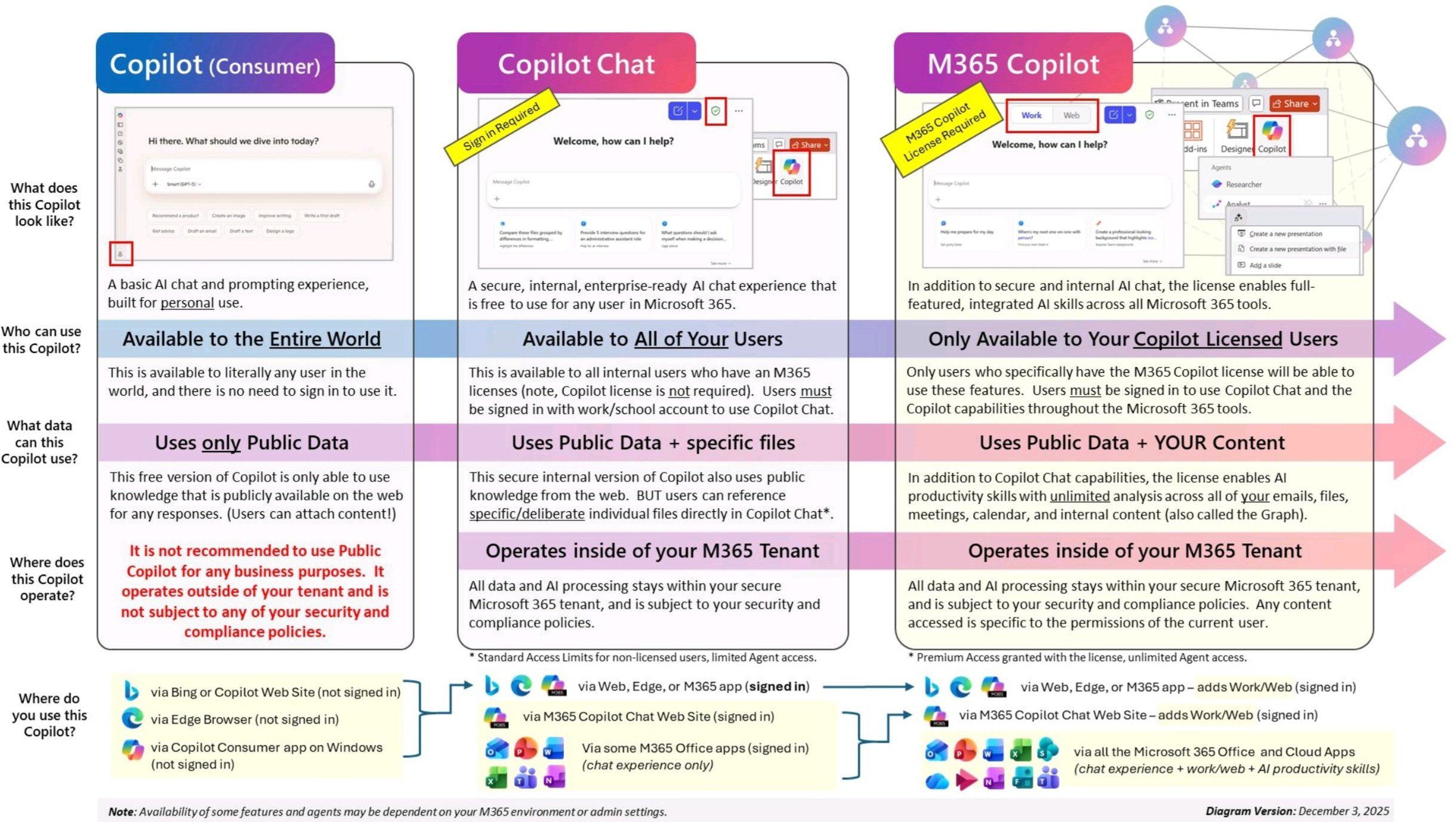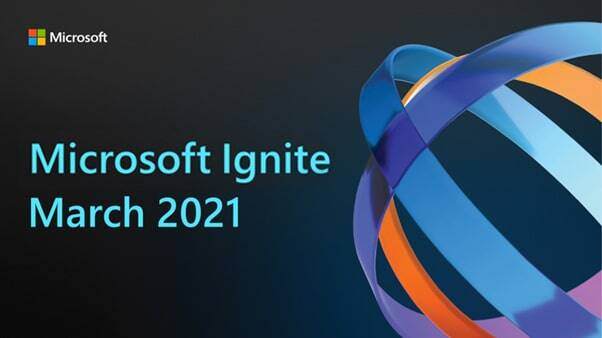Microsoft Build, the annual flagship event for developers and decision makers, featured over 300 sessions, demos, and expert and instructor-led labs from Microsoft and its partners. Some of the key announcements include new ways Azure helps developers build transformational AI experiences, new agent capabilities in Microsoft Copilot, and the introduction of Windows Copilot Runtime and Copilot+ PCs.
Highlights
Over the last year Microsoft has been focused on building three core pillars that have driven leadership in the era of AI. Today at Microsoft Build, they made several important announcements within these areas:
- Copilot+ PCs: with a brand-new AI-chip (NPU) these are the fastest and most intelligent PCs shipped.
- Copilot stack: takes everything Microsoft has learned to date and puts it in the hands of developers so they can build their own copilots.
- Microsoft Copilot: your everyday AI companion.
From code to production: New ways Azure helps developers build transformational AI experiences
Today’s announcements highlight how Microsoft is making Azure the best environment for developing and deploying AI-powered apps, with more choice, speed, scale, flexibility, reliability, safety, security, and efficiency—using the tools developers already know and love. They have taken everything learned from building and deploying AI experiences, like Microsoft Copilot, and made it available so organizations can build and deploy their own.
To learn more about the following announcements, read the blog post by Jessica Hawk, CVP, Data, AI, Digital Applications Marketing.
- GPT-4o, OpenAI’s new flagship model is now generally available through Azure OpenAI Service. This groundbreaking multimodal model integrates text, vision, and audio capabilities, setting a new standard for generative and conversational AI experiences. API includes support for text and image with audio support coming soon.
- Azure AI Studio is a unified platform for building generative AI solutions and custom copilots. The pro-code platform empowers responsible generative AI development, including the development of copilots and assistants, to support complex applications and tasks like enterprise chat, content generation, data analysis, project management, and automation of routine tasks. Developers can use Azure AI Studio to explore the latest AI tools; orchestrate multiple interoperating APIs and models, grounding data, and metaprompts; test their AI innovations for performance and safety; and deploy at scale and with continuous monitoring in production. Azure AI Studio is now generally available.
- Expanded selection of frontier and open LLMs and SLMs, providing flexibility to choose based on business needs. Microsoft has expanded the Phi-3 family of models with availability of Phi-3-small, Phi-3-medium, and Phi-3-vision. With Phi-3-vision, developers can enable multimodal experiences using images as input in addition to text. Phi-3-mini is now available through Models-as-a-Service (MaaS), so you can get up and running quickly and easily. Models including Core42 JAIS, and Nixtla TimeGen-1 are also now available through MaaS in preview. Models from AI21, Bria AI, Gretel, NTT DATA, Stability AI, and Cohere Rerank are coming soon.
- Responsible AI enhancements to help ensure the safe and responsible use of AI, including Prompt Shields, and Groundedness Detection, are now available. Custom Categories are coming soon so developers can create custom filters for generative AI apps tailored to specific content filtering needs. Additionally, Custom Categories provides options for standard and rapid deployment, allowing users to quickly address incidents and emerging threats by deploying new filters in less than an hour. Prompt Shields detect and block prompt injection attacks (users manipulating prompts to inject harmful inputs) and with Groundedness Detection, developers can detect and block “hallucinations” in model outputs. The new capabilities underscore our continued commitment to advancing responsible AI practices and equipping customers with advanced safeguards to protect their AI applications.
- With GitHub Copilot for Azure, now in private preview, developers can build, troubleshoot and deploy applications on Azure all from within Copilot Chat in Visual Studio or Visual Studio Code.
- AKS Automatic, in public preview, provides the easiest managed Kubernetes experience for developers, DevOps, and platform engineers, ideal for modern and AI applications. It automates AKS cluster setup and management, embedding best practice configurations so developers can focus on building great code and be confident their apps will run securely with the scale, performance and needed to support their business.
- Additional updates to empower developers include new data features to assist developers in critical aspects of building intelligent applications—like native vector search capabilities to Azure Cosmos DB with Azure Cosmos DB for NoSQL—and applying AI directly in the database user experience.
Unleashing innovation: The new era of compute power Azure AI solutions
As AI continues to transform industries, Microsoft is expanding its global cloud infrastructure to meet the needs of developers and customers everywhere. Today, they are unveiling the latest progress in developing tools and services optimized for powering your AI solutions.
To learn more about the following announcements, read the blog post by Omar Khan, GM, Azure Infrastructure Marketing.
- Azure’s latest AI infrastructure Virtual Machine (VM) featuring AMD’s leading Instinct GPU, the MI300X, is now generally available. Microsoft is the first cloud provider to bring AMD’s versatile MI300x AI accelerator chip to power customers’ AI inferencing and training. By helping computers process AI-related tasks more efficiently, this chip supports both learning and application of AI models. With the addition of the ND MI300X VM combining eight AMD MI300X Instinct accelerators, Azure is delivering customers unprecedented cost-performance for inferencing scenarios of frontier models like GPT-4.
- Azure Compute Fleet, in public preview, this is a new service that simplifies provisioning of Azure compute capacity across different virtual machine (VM) types, availability zones, and pricing models to more easily achieve the desired scale, performance, and cost by enabling users to control VM group behaviors automatically and programmatically. Azure Compute Fleet has the potential to greatly optimize operational efficiency and increase core compute flexibility and reliability for both AI and general-purpose workloads together at scale.
- Azure Cobalt 100 Arm-based Virtual Machines are now in public preview. Azure Cobalt 100, Microsoft’s first custom-designed CPU for running general-purpose workloads on the Microsoft Cloud, is enhancing efficiency and performance for both Azure customers and Microsoft Cloud Services.
Unlock real-time insights with AI-powered analytics in Microsoft Fabric
With Microsoft Fabric, they are simplifying and future-proofing your data estate with an ever-evolving, AI-powered data analytics platform. Fabric will keep up with the trends for you and seamlessly integrate each new capability so you can spend less time integrating and managing your data estate and more time unlocking value from your data. New capabilities announced today will help you more effectively uncover insights and keep you at the forefront of the trends in data and analytics.
To learn more about the following announcements, read the blog post by Arun Ulagaratchagan, CVP, Azure Data.
- Introducing Real-Time Intelligence. The original Microsoft Fabric workloads—Synapse Real-Time Analytics for data streaming analysis and Data Activator for real-time detection and monitoring of data—have been enhanced and combined in the new Real-Time Intelligence workload, to help data professionals more easily unify, analyze, and act on large, time-sensitive, and highly granular data in a proactive and timely fashion. With both powerful, code-rich and simple, low and no-code interfaces, Real-Time Intelligence empowers every user to work with real-time data. Real-Time Intelligence also comes with the Real-Time hub, a single place to ingest, process, and route events from diverse sources in Fabric. While the existing Real-Time Analytics capabilities are still generally available, the Real-Time hub and the other new capabilities coming to the Real-Time Intelligence workload are currently in preview.
- Microsoft Fabric Workload Development for ISVs, in public preview, helps ISVs extend their existing applications natively within the Microsoft Fabric Framework. With the availability of Microsoft Fabric Extensibility Framework as an ISV offering via the Azure Marketplace, developers will be able to offer customers added value with their solutions without leaving their Microsoft Fabric environment.
- Azure Databricks continues to be an important part of our analytics portfolio. Soon you will be able to access Azure Databricks Unity Catalog tables directly in Microsoft Fabric as well as leverage Vector Search capabilities in Azure Databricks. These innovations will make it even easier to unify Azure Databricks with Microsoft Fabric and extend existing investments in Azure Data Lake Gen2 (ADLSG2) and Power BI.
- Expanded Snowflake Partnership: With the launch of Fabric, Microsoft has committed to open data formats, standards, and interoperability with partners to give customers the flexibility to do what makes sense for their business. Announced at Build, Microsoft is taking this commitment a step further by expanding the existing partnership with Snowflake to create full interoperability between Snowflake and Fabric’s OneLake. Future support for Apache Iceberg in Fabric OneLake and bi-directional data access between Snowflake and Fabric will enable users to analyze their Fabric and Snowflake data stored in Iceberg format in any engine within either platform, and access data across apps like Microsoft 365, Power Platform, and Azure AI Studio. To learn more, read the blog post by Raghu Ramakrishnan.
New agent capabilities in Microsoft Copilot unlock business value
Microsoft is delivering an entirely new set of capabilities that unlock Copilot’s ability to drive bottom-line business results for every organization. They are expanding Copilot to work on behalf of a team, improving collaboration and project management. Organizations can create custom copilots that act as agents to orchestrate and automate business processes. Copilot extensions and Copilot connectors make it easy to tailor and extend Copilot to meet unique business needs.
To learn more about the following announcements, read the Microsoft 365 blog post by Jared Spataro, CVP, AI at Work, and the Power Platform blog post by Charles Lamanna, CVP, Business Applications & Platforms.
- Team Copilot expands Copilot beyond a personal assistant to act as a valuable new member of the team, improving collaboration and project management. Team Copilot acts on behalf of a team—participating and contributing along with the team. You’re always in control—assigning tasks or responsibilities to Copilot so the whole team can be more productive, collaborative, and creative, together. Team Copilot will be available where you collaborate—in Teams, Loop, Planner, and more, and act as a meeting facilitator, group collaborator, and project manager.
- Agents: custom copilots that enable customers to orchestrate business processes (in Early Access Program). Copilots built with this new category of capabilities work independently under your direction to automate long-running business processes, reason over actions and user inputs, leverage memory to bring in context, learn based on user feedback, record exception requests and ask for help.
- Custom copilots created from SharePoint will help users get the information they need from files in seconds, grounded in their SharePoint and OneDrive data. Easy to create in just a few clicks, with additional enhancements available using Copilot Studio, these copilots can be easily shared within an organization. Sign up for Early Access Program now.
- With new Copilot extensions, Microsoft is making it easy for users to customize Microsoft Copilot actions and extend Copilot to their data and line of business systems. Developers can build these extensions using either Copilot Studio or Teams Toolkit for Visual Studio.
- Copilot connectors in Copilot Studio are components to ground Copilot on additional business data from external systems with over 1400 built-in connectors for Adobe, Atlassian, Snowflake and more, making it easier and faster for developers to create Copilot extensions.
- AI recorder in Power Automate (in Early Access Program) creates a more natural, multimodal experience where users create flows by both showing and telling the recorder how to automate a task, using voice and screen share rather than mouse clicks and keyboard entries.
Unlock a new era of innovation with Windows Copilot Runtime and Copilot+ PCs
As we all continue our journey into the AI era of computing, Microsoft is giving developers who are at the forefront of this AI transformation the right tools to deliver differentiated AI experiences. nt he first Microsoft Build day they introduced a new category—Copilot+ PCs—and today they are sharing how this new class of devices is an invitation to app developers to deliver differentiated AI experiences, making Windows the best place for development needs and enabling developers to bring incredible experiences to over 1.4B users.
To learn more about the following announcements, read the blog post by Pavan Davuluri, CVP, Windows + Devices.
- Announced yesterday, Copilot+ PCs are the most intelligent PCs ever built, with AI infused at every layer, powered by Neural Processing Units (NPUs) capable of delivering 45 TOPS of compute. This new class of devices is an invitation to app developers to deliver differentiated AI experiences that run on the edge taking advantage of the NPUs to bring great benefits, minimal latency, cost efficiency, data privacy, and more.
- Extending the Microsoft Copilot stack to Windows with Windows Copilot Runtime which has AI infused into every layer of Windows, including fundamental transformation of the OS itself to enable developers to accelerate AI development on Windows. Windows Copilot Runtime has everything developers need to build great AI experiences regardless of where they are on their AI journey. Windows Copilot Runtime includes Windows Copilot Library which is a set of APIs that are powered by the 40+ on-device AI models that ship with Windows. It also includes AI frameworks and toolchain to help developers bring their own on-device models to Windows and is built on the foundation of powerful client silicon, including GPUs and NPUs.
- Introducing Phi Silica state of the art SLM which is designed to run best on NPUs in the Copilot+ PCs. Microsoft is making the Phi Silica API available through Windows Copilot Library along with other AI APIs like vector embeddings, retrieval augmented generation (RAG), text summarization and optical character recognition (OCR).
- Introducing native support for PyTorch and the new Web Neural Network (WebNN) framework through Windows DirectML so developers can scale their AI investments across Windows hardware with less engineering effort.
- Introducing Environments in DevHome, performance improvements to DevDrive, and more new features designed to help every developer become more productive on Windows.
Next Steps
- See the full set of announcements. Read the Book of News, the Official Microsoft Blog, and the hero blogs and resources linked above to learn more about our key announcements.
- Tune in to watch Microsoft Build sessions live and on demand and browse the session catalog to explore all the available learning opportunities.
- Continue your learning, explore training opportunities, and more with Microsoft Learn, and read the Microsoft Learn Blog that highlights new AI and Copilot skilling opportunities as well as new Microsoft Applied Skills.
- Attend Microsoft Virtual Training Days—free, in-depth, virtual training events that guide you toward the many possibilities for career and organizational impact today and tomorrow.
And as always, reach out to the team at Infused Innovations on how we can help you modernize securely, innovate responsibly, and collaborate on strategy and roadmap in a scalable and effective way.
Stay connected. Join the Infused Innovations email list!
Share this
You May Also Like
These Related Posts

Navigating the Buzz Around Copilot: A Business Leader’s Perspective

Decoded: The Difference Between Consumer Copilot, Copilot Chat, and Microsoft 365 Copilot

No Comments Yet
Let us know what you think